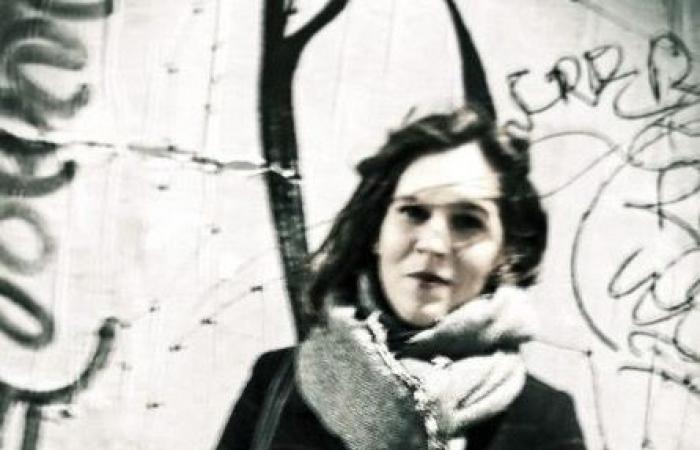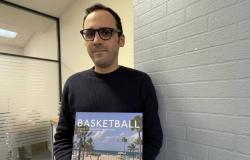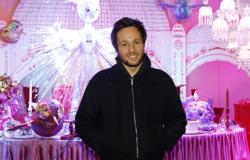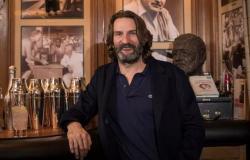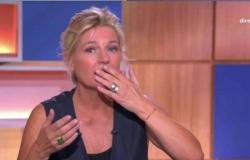Çstarted with Sailing. The book passes through the hands of the bookseller who wears a mask over her mouth and nose. It's 2020. She turns the book over. She reads the back cover: “ The night the boys dance to ward off fate and bring to life a greater desire. » She said: oh yes, we could really use that right now. It was a book by Marie de Quatrebarbes.
The elements is her fourth book published by POL Marie de Quatrebarbes practices a poetry of openness. “ Sometimes you just have to open a window in the film for the window to open on the face “. A series of successive openings embodied in as many windows, doors, or looks as his words allow us to pass through. Passages conceived as reversals – of situations, of logic – which would make it possible to reshape the world differently and entirely, to use the words of Robert Burton quoted in the epigraph. The poetry of Marie de Quatrebarbes is made of holes, of places to cross (from bottom to top, from outside to inside, and so on). Reality finds itself expanded in all its sensitive dimension, matter becoming more than simple matter; where we believe we are touching impalpable things. And, once again, desire is the driving force.
No doubt the elements of the title are there, more than those of modern physics – earth, water, fire, air – perhaps they reside more in the experience we have of them than in their own existence. And so: a transformation takes place. Through the sensitive, first; and knowledge, then. Layers and layers of sediment become sand, in the words of Marie de Quatrebarbes. Plastic, glass and dishes break in the same material of millions of particles which welcomes the sea. My eyes ended up there by chance, in yours “. By chance, things change into others, rhythms and movements of his language seem as banal as those of the tides. Something like evidence in his way of constructing his sentences, his paragraphs of two, three lines, rarely more, which follow one another, up to the one without any punctuation which prevents us from breathing until the next one which soothes; let's not call it obvious, because we know that behind this impression lies a lot of work to achieve this cadence that rings true.
Sentences sometimes like refrains, where the words are like frames for the idea. “ If you push the door located at the back of the courtyard, you will see that it then opens this somewhere beyond which the eye is looking “. We repeat it to ourselves, we repeat it to ourselves… each sentence is an opening, yes. And we remember while reading that the look defines as much the action of looking, the expression of the eyes, as a opening allowing you to see through. The peephole in a door is just a distorted way of seeing hidden behind ; Marie de Quatrebarbes opens everything, and no lens, no distorting glass. The view is true. This is not where the transformation specific to his poetry takes place (in the look) but rather in the material and the elements explored with the words. “ When does the river change into the sea? “. His poetry is one of those that reflects on boundaries to blur them, of those that dive and search underground and in the sky in search of a contradictory description. And this, from sensations and for them, always — nothing else. And why? To make life easier, from childhood, the age which is not made up of intentions but of to feel andact.
« Experience teaches us nothing about ourselves, it barely allows us to navigate more flexibly “. And immediately, I see: a boat that rocks in all its instability as a boat that floats as we float in the life that is made for us. And, immediately afterwards, I see something else: people who dance, who dance voguing, in a more flexible way with the experience accumulated from nights together until the last, who dance desire and life. This is what was in question, in a certain way, already, in Sailing. The last evening came too soon. And poetry to give something back to these people who were sailing then. Who were floating. Who loved. Who were sailing. To the one murdered on the night of 1is on November 2, 1975 on a beach in Ostia, named Pier Paolo Pasolini. To the one found dead in her hotel room in 1988, named Venus Xtravaganza. To dance. Sailing. To like. Navigate visually. Already, the words increased them, so to speak, made them even more alive. Already, openings; that is to say, possibilities. Words that made desire come alive; who said dance = live.
Simonides: As poetry is a spoken dance, so dance is a silent poetry. » Yes, as we create fiction on a stage by saying: silence, it turns / In a book, we are silent, and we say without noise: silence, it opens. And then it lives, bigger than anywhere else.
Marie de Quatrebarbes, The elementsPOL editions, 2024, 128 pages, €16.

